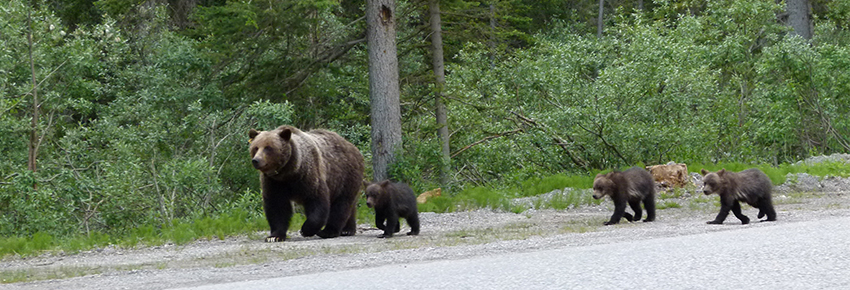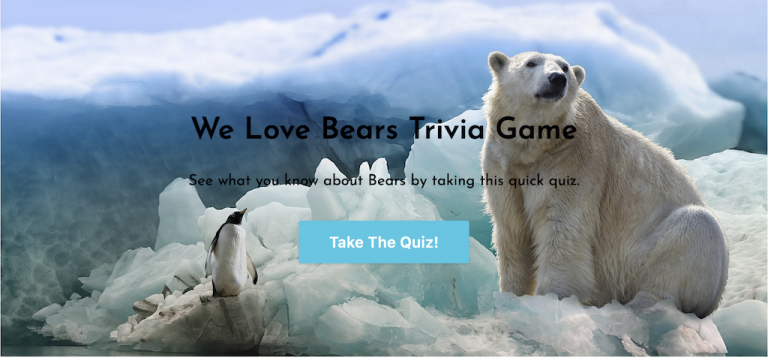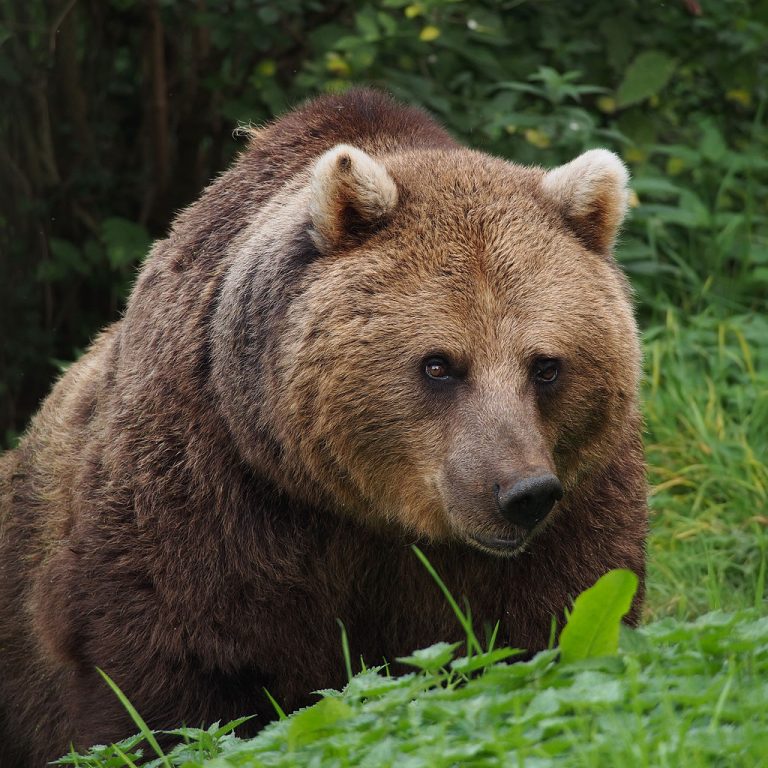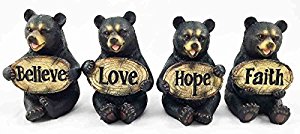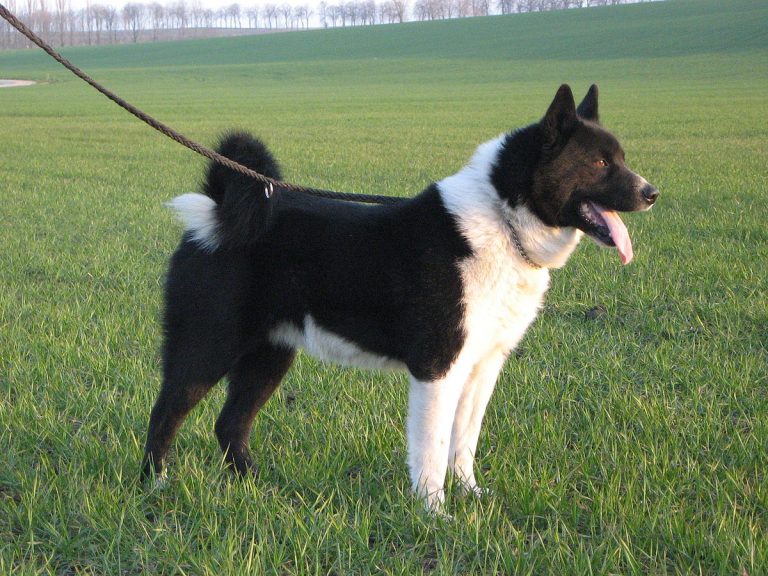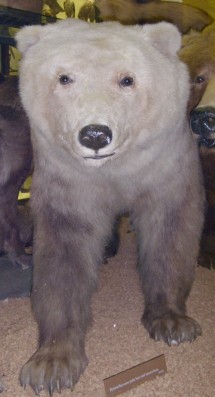Canadian Province Agrees To End Grizzly Bear Trophy Hunting
The Canadian Province of BC has finally decided to end bear trophy hunting.
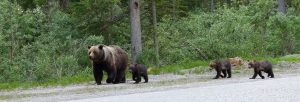
Conservationists and an overwhelming majority of British Columbia (BC) residents are happy at the recent announcement banning the Annual Bear Trophy Hunt in the province. Effective November 30 2017, trophy hunters will no longer be permitted to hunt grizzlies (a subspecies of brown bear) there.
Trophy hunting was reintroduced in the province 16 years ago by the previous Liberal government. The Liberals were later ousted in July by the New Democratic Party.
One of the newly elected party’s promises was to end the hunt.
What Is Trophy Hunting?
Trophy hunting is an activity where people engage in the selective hunting of wildlife for recreational purposes.
The “trophy” is the animal or a part of the animal that is later preserved and put up for display. This sport requires time, money and effort and is essentially competitive in nature. Meaning, the larger the trophy the better a hunter you are.
Trophy hunting in Canada: Today, most of the hunting in Canada is recreational. However, the indigenous tribes are allowed to hunt animals for food. That’s a right they retained when they ceded lands to the settlers under treaty.
There are presently circa 15,000 grizzly bears in British Columbia. Out of that number about 250 are killed by hunters every year.
A recent survey shows that almost 90 percent of BC residents oppose trophy hunting.
Some Of The Major Problems Of Grizzly Bear Trophy Hunting
We are strongly against the trophy hunting of any wildlife. But for the purpose of this post, let’s focus on bear trophy hunting.
-
Declining Support And Interest In Hunting.
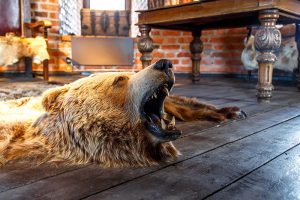
A Rug Made Out Of A Bear (Photo: britishcolumbia.com)
As more people become aware of the cons of killing off a particular species, the urge to hunt in modern times is declining rapidly.
Available data indicates that hunters dropped from about 1.5 million in 1991 to less than 260,000 in 1994. Though that figure includes hunters for other animals as well not just bears.
-
The Difficulty Of Enforcement.
There are rules and regulations that control this exercise. For instance, hunting season, number of bears they can kill, etc. But enforcement can be tricky.
There will always be hunters that want to go over the allocated quota or exploit any loophole in the system.
In such cases, it becomes nothing more than a cover for poaching. To combat this, hunters and the general public are asked help ensure the rules are followed by exercising vigilance.
Some provinces even have reward incentives for reporting infractions. For example, the Report-a-Poacher program in Alberta.
-
Trophy Hunting Is A Largely Elitist Sport.
Hunters come from many foreign locations to very remote habitats in search of “big game” such as bears. Obviously, not everyone can afford to travel that far or afford the necessary tools for a successful hunt. It’s more of a guise for the rich to enjoy the thrill of the chase (or in this case: the hunt).
Why Canadian Bear Trophy Hunting Must Stop.
-
It’s Inhumane and wasteful.
The grizzly bear is one of a selected number of animals in B.C. that are exempted from meat harvesting regulations. In essence, after removing the skin and head, the rest of the body is left to rot. Killing such a large animal for fun serves no purpose at all and is morally unacceptable.
-
How sustainable is it?
Many people question the accuracy of the government’s grizzly bear population projections. The present estimate is about 15,000 grizzly bears in B.C.
How does one know the exact population growth rate and how many bears are being poached? How do they project the possible effects on bear population in the future?
-
It’s bad for local businesses.
Bear-viewing is big business in BC.
Visitors travel hundreds and thousands of miles for a chance to sight the famous grizzly bear in the wild. As a matter of fact, a 2012 report showed that bear-viewing visitors spent 12 times more money on the local economy than bear-hunting visitors.
However, recently ecotourist have been “bumping into” bear hunters. Many times, local bear-viewing tours are cancelled to avoid tourists seeing the harvested bodies of dead bears: the leftovers of trophy hunts.
Since both activities take place in the same season (spring), it’s always like walking a thin line. Visitors are outraged when they hear about the bear trophy hunting and they leave immediately.
-
The bears are more valuable alive.
For long the government’s position was that the BC bear trophy hunt could coexist with bear-viewing. But evidence on ground shows that’s not the case.
Cancellations of bear-viewing tours can cost hundreds of thousands of dollars in losses local businesses. And loss of part-time jobs too.
A 2012 report shows that bear-viewing related expenses totaled almost $15.1 million compared to just $1.2 million generated from bear-hunting visitors.
Observers like Joe Foy (the Wilderness Committee) are applauding the decision as an end to the “senseless killing of grizzly bears.”
They estimate that about 4,000 grizzlies have been killed since the return of trophy hunting.
It’s definitely a move in the right direction. Instead of just shooting big game, why not encourage ecotourism instead?

